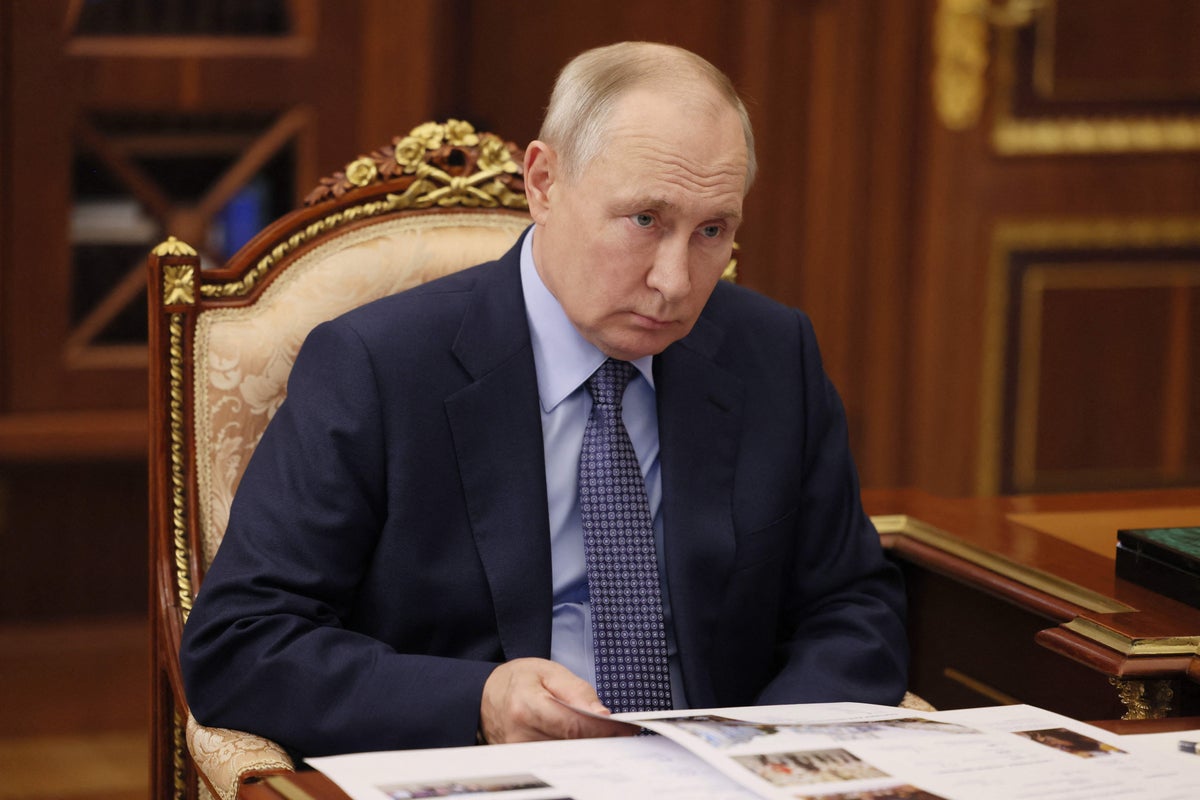
Russia is poised to discover whether its efforts to rejoin the UN’s Human Rights Council – using stolen Ukrainian grain to win votes in the process – have been successful.
A secret ballot of UN member states will be held later on Tuesday to allocate 15 seats for the top human rights body, more than a year after Russia was booted out for invading Ukraine.
Experts previously told The Independent that Russia will try to lure African allies and other friendly nations with stolen Ukrainian grain and arms in exchange for their votes. The vote is seen as a key test of Western efforts to keep Moscow diplomatically isolated.
Anna Mykytenko, a senior lawyer for the NGO Global Rights Compliance based in The Hague, said Russia’s war crimes now are “no less cruel or widespread than the ones committed in Bucha in spring 2022, when Russia was suspended from the Human Rights Council”.
“Russia’s pattern of flagrant disrespect towards international law remains shockingly consistent,” she told The Independent. “Although now most of these crimes do not make it to the front pages of the international media, the aggressor state that keeps on committing war crimes and violating human rights cannot benefit from decreasing attention to the war in Ukraine and an opening to slink back into a UN Human Rights Council seat.”
US deputy ambassador Robert Wood told the Security Council that Russia’s re-election “while it openly continues to commit war crimes and other atrocities would be an ugly stain that would undermine the credibility of the institution and the United Nations”.
Diplomats who were aware of Moscow’s attempts to woo nations using grains said the US and others had distributed letters of their own to many of the UN General Assembly’s members, asking them to vote against Russia.
Russia is up against Bulgaria and Albania for two Eastern Europe seats. The successful candidates each need a majority – at least 97 votes – to win a three-year term starting on 1 January. A total of 47 member states are part of the UNHRC based on geographic distribution, with the UN’s five regional groups sending names to be added to the shortlist.
And Moscow’s competitor Albania has also ramped up its campaign to join the UNHRC by calling out Russia’s atrocities in Ukraine.
Albanian UN ambassador Ferit Hoxha said those who care about human rights and the “credibility of the Human Rights Council and its work” should oppose the nation which kills innocent people, destroys civilian infrastructure, ports and grain silos and “then takes pride in doing so”.
The General Assembly had mustered the required two-thirds majority to suspend Russia from the Human Rights Council in April last year – nearly halfway through its three-year term and shortly after Ukraine recaptured the town of Bucha and accused Moscow of large-scale atrocities. Russia denied the accusation.
The council does not have legally-binding powers, but its meetings raise scrutiny and it can mandate investigations to document abuses which have sometimes formed the basis for war crimes prosecutions.
Experts warned against Russia’s pattern of “flagrant disrespect” towards international laws and bringing it back onto the panel amid the continuing invasion, especially with the latest attack on the Ukrainian village of Hroza in Kharkiv.
At least 51 people died in the missile attack, wiping out members from almost every family. While Russia says it does not strike civilian targets, a two-day-old baby boy was killed after a Russian missile struck a hospital in the city of Vilniansk, Zaporizhzhia.
A child was also among the dozens killed when Russian missiles hit a grocery store and café in the village of Hroza.
International rights group Human Rights Watch has said Russia and China are unfit to serve on the Human Rights Council.
“Every day, Russia and China remind us by committing abuses on a massive scale that they should not be members of the UN Human Rights Council,” Louis Charbonneau, UN director of Human Rights Watch said last week.
The rights group said Russian forces in Ukraine continue to commit apparent war crimes, including unlawful attacks and crimes against humanity, torture and summary executions.
It pointed out how Mr Putin and Russia’s commissioner for children’s rights Maria Lvova-Belova are sought by the International Criminal Court for alleged unlawful deportation of Ukrainian children.
Wayne Jordash KC, president and co-founder of Global Rights Compliance, said any attempts to allow Russia back to the seat of the Human Rights Council are “not only unacceptable and indecent but signify a dangerous global drift into untrammelled violence against the most vulnerable and innocent”.







